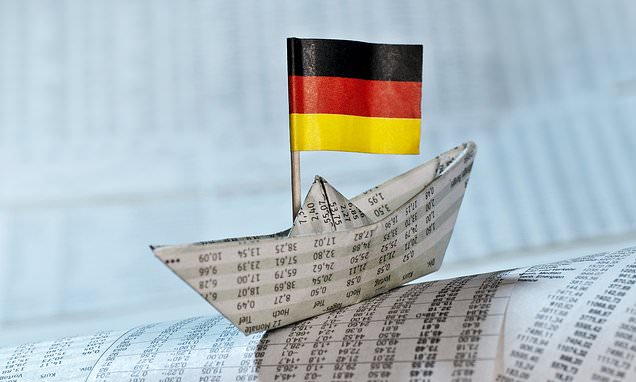
The knee-jerk response to any negative event for the UK economy is to blame the exit from the European Union. It would be foolish to pretend Brexit has not had an impact. Plainly it has led to a short-term hit to trade as customs and border systems adjust. It also added to the stress of tight labour markets.
What critics underestimate is the shift in the geo-political tectonic plates which affect not only the UK but also our former partners in the EU.
Over the longer haul, Germany – Europe’s locomotive economy – looks as if it may be more profoundly impacted than the UK or anywhere else.
After two decades or more of chasing Chinese markets, the strategic and economic focus is changing dramatically.
Germany has already been punished for the energy dependence on Russia, negotiated by Angela Merkel, and has moved rapidly to find replacement resources. The country’s prosperity is highly dependent on engineering, making things and exporting them to China. Both its dependence on Russian energy and the Chinese market for high-end cars are starting to hurt. Latest output data from Germany reflects Berlin’s struggle with zero growth in the first quarter after a 0.5 per cent slide in the final period of 2022.
One can whisper it quietly, but in spite of all the negativism about the UK, we are doing slightly better. Our services-led economy and skills in high-tech and life sciences are a good prop in hard times.
The EU’s inflation may be calmer than that in the UK, but the squeeze on incomes and higher borrowing costs, as the European Central Bank tightens policy, are hurting. Germany – as Constanze Stelzenmuller, of the US think-tank Brookings, notes – is at a strategic crossroad. It has put too much faith in Moscow and Beijing. But it never reckoned with President Xi of China holding leverage over Russia as Western sanctions bite. Nor did anyone see the People’s Republic flexing its muscles – first over Hong Kong and now Taiwan.
China is Germany’s most critical trading partner ahead of the United States. As the Brooking fellow notes, severing relations would be even harder than the breakdown with Vladimir Putin’s Russia. It would be a ‘meteorite’ aimed, not just at Germany’s economy, but the whole of the EU.
The breakdown of Germany’s relations with Russia and China are potentially going to be far more damaging to Europe than Britain’s exit from the EU.
The International Monetary Fund has warned of a second Cold War which is already being fought over the economies of the most highly-indebted nations in the world.
Related Articles
HOW THIS IS MONEY CAN HELP
Just to add to the anxieties, America has turned in on itself as it, too, seeks to switch off dependence on China with its enormous green energy and chip subsidies.
It has become axiomatic in Britain to mock the dozens of trade deals signed since we left the EU, many with new partners such as Japan and Israel, and others deepening existing relationships in the Pacific with Australia. The real prize would be a trade deal with fast-growing India, which includes financial services.
That would leapfrog the UK and the City over competitors including Germany.
Small world
In discussing Germany, the swoop by Deutsche Bank on City broker Numis for £410m feels a bit like a return to the 1990s.
Back then, American, Swiss and other big lenders – such as HSBC – swooped on the most revered names in stockbroking and merchant banking. Traditional brokers such as James Capel, Simon & Coates, Phillips & Drew, Smith New Court and bigger beasts such as Flemings and Warburg (now part of UBS) disappeared. The bluest-blooded of all, Cazenove, hung on until 2019 before becoming part of JP Morgan Chase.
Deutsche has never managed to make the jump from Frankfurt-based ‘money center lender’ to world-class investment banker. Numis has useful tech and media clients and may offer the start of a route back to broking glory. The history isn’t encouraging. Some broking clients value the personal connections and service of the smaller financial groups and soon lose their identity as part of a financial behemoth.
Room is also created for challenger brokers and merchant bankers who recognise the value of nurturing clients.
Some links in this article may be affiliate links. If you click on them we may earn a small commission. That helps us fund This Is Money, and keep it free to use. We do not write articles to promote products. We do not allow any commercial relationship to affect our editorial independence.






